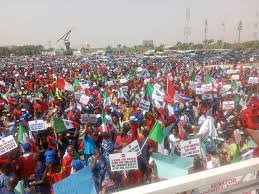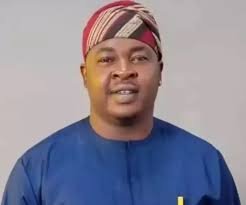Nigeria’s deepening economic hardships have sparked a growing wave of discontent nationwide. With plans for widespread protests set to begin on August 1st, authorities are on high alert, and debates about government policies and civil liberties have been rekindled.
The planned demonstrations, set to unfold across Nigeria’s 36 states and Federal Capital Territory from August 1-10, 2024, aim to draw attention to the severe hardships facing many Nigerians. Organizers cite soaring inflation, high unemployment, and a general deterioration in living standards as key motivating factors.
“The REVOLUTION is now knocking on our doors!” declared Omoyele Sowore, 2023 presidential candidate of the African Action Congress, in a social media post. “Let everyone rise all at once in August 2024!”
While some protest organizers, particularly in northern Nigeria, have remained anonymous, high-profile activists like Sowore have been vocal in rallying support. A widely circulated flyer titled “End Bad Government in Nigeria 2024” outlines 10 key demands, including reversing fuel prices to below 300 naira per liter, reducing education fees, and lowering electricity tariffs.
The roots of the current discontent can be traced back to May 2023, when President Bola Tinubu’s administration eliminated longstanding fuel subsidies. While economists had long argued the subsidies were unsustainable, their removal triggered sharp increases in transportation costs and inflation that have severely impacted everyday Nigerians.
“Since the current administration took off in May 2023 when President Bola Tinubu announced the abolition of fuel subsidy, there has been an untoward hardship in the country,” noted an analyst.
The planned August protests follow smaller demonstrations earlier this year. In February, angry youths and women took to the streets in Minna and Kano to protest skyrocketing food prices. On June 12, civil society groups including the Take It Back Movement and Coalition for Revolution staged protests in southwestern states against the rising cost of living and insecurity.
As tensions rise, Nigerian authorities appear to be taking a hardline stance against the planned demonstrations. An internal police memo dated July 8th, leaked to the media, directed officers to “be proactive, mobilize well kitted and equipped personnel” and “disperse unlawful gatherings.”
The Department of State Services (DSS) has also taken action on Monday, arresting Aliyu Sanusi in Sokoto State for allegedly printing and distributing protest materials. This follows the earlier detention and release of Bashir Abubakar in Kano for similar activities.
These moves have drawn criticism from human rights activists. Sowore labeled the DSS “lawless” and called for Sanusi’s immediate release.
Some political leaders are advocating for dialogue rather than confrontation. Senator Ali Ndume advised President Tinubu to engage with protest organizers, stating, “I think the President should talk to Nigerians, talk to the youths.”
The Nigeria Labour Congress (NLC) echoed this sentiment, urging Tinubu to “invite the leadership of the protest movement for discussions on their grievances.” NLC President Joe Ajaero emphasized, “All that the hurting citizens demand from their government is a listening ear and an empathetic heart.”
The planned protests come against a backdrop of severe economic challenges. Nigeria’s inflation rate hit 34.19% in July, with food prices rising even faster. The removal of fuel subsidies, while aimed at long-term economic stability, has caused immediate pain for many citizens.
“These are dire times. Nigerians are angry,” stated the NLC’s Ajaero, highlighting the stark contrast between the struggles of ordinary citizens and the perceived excesses of the political elite.
Public opinion on the protests appears mixed. While many Nigerians sympathize with the economic grievances, some fear a repeat of the violence that marred the 2020 #EndSARS protests. Religious and traditional leaders in some states have cautioned against street demonstrations, advocating instead for peaceful dialogue.
The Emir of Dutse, Hamim Nuhu-Sanusi, warned that the 2020 EndSARS protest had set “a dangerous precedent that no Nigerian would like to see repeated anywhere in the country.”
As the planned protest dates approach, Nigeria finds itself at a crossroads. The government faces mounting pressure to alleviate economic hardships that have pushed many to the brink. At the same time, there are valid fears that demonstrations could spiral out of control if not managed carefully.
Ultimately, sustainable solutions will require good faith efforts from both citizens and authorities. Protest organizers should commit to peaceful methods and clearly communicate their goals. The government must demonstrate it is listening and taking concrete steps to address the cost of living crisis.
As one protest organizer succinctly put it: “This hunger is too much.” How the government responds to this cry of desperation may well define the next chapter in Nigeria’s ongoing struggle for stability and prosperity.
























